November 20 would mark the 85th anniversary of the first Abkhaz poetess Nelly Tarba.
Arifa Kapba
The first Abkhaz poetess Nelly Tarba was born in the family of a native of Duripsh Zolotinsk Tarba and his wife Vera Chichba, who was originally from the village of Achandara. Nelly's father was a descendant of Abkhaz forcibly displaced from their native lands to Turkey. He, the only one of the three brothers, managed to return from exile to Abkhazia and brought a handful of land from a foreign land from the grave of his mother Asida, thus fulfilling her suicide request.
Arrest of the father
The story of Nelly Tarba's parents is in many ways similar to the fate of many Abkhaz families in the terrible 30s of the last century. Nelly was only three years old when her father was arrested on August 20, 1937. On October 4 of the same year, Zolotinsk Tarba was shot, but the family did not know anything about this and for many years kept the hope of his return.
“He was a man who was educated at that time, a lawyer, and even a communist, mother still has his books, collected works of Lenin, Marx,” says Nelly Tarba's daughter Asida Lomia about her grandfather. “There is also a joint photograph of a group of educated Abkhaz with Dmitry Gulia and other famous Abkhaz. My grandfather Zolotinsk Tarba is among them.”
Nelly's mother, Vera Chichba, tried all her life to learn at least something about the fate of her husband. The family was sure: he was somewhere in the Stalin’s camps. Once, even after learning that somewhere in Siberia in the camp there is a prisoner by the name of Tarba, Nelly’s brother Sergey went there on a purpose. However, the information turned out to be false. Zolotinsk Tarba’s wife found out that her husband died only twenty years later, and then went into mourning. Asida Lomia learned about the details quite by accident at an international conference, where she got access to the archives of the KGB of Georgia more than 70 years after the day her grandfather was taken.
Daughter of Duripsh
Longing for her father, Nelly Tarba carried his image through her work.
She began to write poetry early, while still studying at Duripsh School. When Vera Chichba was left alone with two children, she moved to Duripsh with her husband's parents. Then she herself was arrested, and she gave birth to her third daughter Lyudmila in a prison hospital.
Nelly grew up in Duripsh and loved her village very much. There are, for example, such lines of Tarba about it:
My village, my joy
My love is forever with you
To the bottom. Alone.
And no rewards are needed!
Nelly glorified the beauty of the homeland and its people in her works. And these are not only poems. The poetess devoted almost 20 years of her life to writing the book “Your Sons, Duripsh”, in which she collected the stories of all the heroes of the village who did not return from the fields of the Great Patriotic War. Like a true daughter of her village, she mourned the fallen fathers and brothers with this book. By the way, one of the chapters of the book is dedicated to her father - Zolotinsk.
“I consider this book one of the main books of her life, although this was not a poetic work. Having four children, being very busy, she found time to visit the families of the victims, corresponded with their fellow soldiers. She sometimes left for a week, often went [collecting material for the book] on Saturdays and Sundays with our dad and with us. In this book, she immortalized the images of Duripsh's heroes by creating a miraculous monument for them,” the poet’s daughter notes.
Autobiography in creativity
There is a lot of autobiographical in the works of Nelly Tarba. Therefore, the prototype of the main character of the book “Matsisa” was her mother, Vera, and Matsisa’s husband - father Zolotinsk.
“The tradition in those days was the following: at first the work was printed in the literary journal “Alashara”, and only then it was released as a separate book,” says Asida Lomia. “The editor-in-chief of the journal was the famous Abkhaz writer Chichiсua Dzhonua, and he called her (Nelly - ed.) into his office after reading “Matsisa”. She wrote everything there, as it was, that her father was arrested in 1937 and did not return. Dzhonua asked her to change the content, as if the hero had died in the war. Mom did not want this, she was very worried, resisted censorship, but then, in order to publish the story, she surrendered.”
As for the talent to write poetry and love for poetry, it passed on to her from her grandmother Katya Gunba, a wonderful storyteller who could incredibly easily, entertainingly and beautifully tell stories and legends of antiquity. Tarba loved her grandmother very much, often remembered her throughout her life and believed that she owed her talent to her.
In 1954, after graduating from the Duripsh School with a gold medal, Nelly Tarba entered the philological faculty of the Sukhum State Pedagogical Institute. A year later, her first book of poems, “Ways and Roads,” was published, a little later there were books “The Heart of Spring”, “Bzyb Tale”, “Youth and Dreams.”
“You’ll see, I will marry Kumf Lomia”
In her personal life, Nelly was a happy woman. She married a man who not only loved her, but also understood her as a poet. Her husband was the Abkhaz poet Kumf Lomia. It was one of the most beautiful and famous couples in Abkhaz society.
The story of their acquaintance is quite interesting. While still a schoolgirl, Nelly read in the “Apsny Kapsh” newspaper poems by Kumf Lomia which she liked so much that she read them aloud to her grandmother and joked: “You’ll see, I’ll marry Kumf Lomia.” Time passed, and somehow the young poet, on the advice of the outstanding scholar Shalva Inal-Ipa, came with her poems to the Union of Writers of Abkhazia. The first person to meet her there was the Secretary of the Writers' Union, who introduced himself to her as ... Kumf Lomia. She smiled at him. Therefore, their acquaintance began.
Out of their great love and understanding with her husband comes all the lyricism of Nelly Tarba's poems - soulful and sensual. A very common theme was the feelings of two loving hearts, and for the 60s of the last century, this, by the way, was great courage.
One of Tarba’s best love poems is “I want you not to be sad for a single day because of me.” It is dedicated, of course, to her husband. Already in our time, the young singer Renata Bagatelia sang a song to the words of this small poem, amazing in its depth and permeated with the theme of fidelity, devotion, restrained and at the same time lyrical. It was translated into Russian by the famous Russian poetess Rimma Kazakova, who came to Abkhazia many times and stayed in the house of Kumf Lomia and Nelly Tarba.
In the family of Nelly Tarba and Kumf Lomia, three daughters and a son were born. The birth of a son was one of the most long-awaited and touching events for the poetess. She even dedicated a whole cycle of poems to her yet unborn son.
In one of these verses, she, as it were, refers to the heroine of the Abkhaz epic Sataney-Guasha, who, according to the legend, was the mother of one hundred sons:
Sataney, Sataney,
Guasha Sataney!
Have I told you
About my suffering?
And that I have
No night, no day
No sleep and no peace?
Have you heard that ...
... the hair is curly and thin -
Scythes on the back flow.
If only I could have a half of it! Yes, but
Envy has nothing to do with it.
You were waiting for a hundredth son!
I am waiting for the first now.
That's where the reason for the envy
This is what connects us.
Loving family and favorite activity
“In Abkhaz families, it’s not customary to show feelings and talk about love, but Dad cared so much for Mom and us that it was not necessary to [say anything], everything was so obvious. He wholeheartedly supported her in everything, although she was quite emotional in a feminine way and loved us selflessly,” recalls the oldest daughter Asida Lomia.
Children in the family were brought up strictly, but it was rather a manifestation of love and care. Nelly Tarba knew how and loved to cook, and in the kitchen they had entirely huge pans. The fact is that, in addition to the family itself, relatives lived in the house for a long time, most often students from villages who studied in Sukhum.
Raising four children, being a welcoming and hospitable hostess, Nelly nonetheless always found time for creativity, wrote every day.
“We had a typewriter converted to the Abkhaz style (the Abkhaz font - ed.), and I remember how very early in the morning I heard from the bedroom how she quickly typed. Later, she wanted to have a computer, and I remember how I objected, and told her: you already have poor eyesight. By nine in the morning, she went to work, having managed to cook a huge pot of food in advance. In general, she was a happy woman who had a loving family, talent and a beloved business that she was engaged in. Here I recall the words of the writer Veniamin Kaverin, who said that a happy person is the one who, despite the difficulties, will always find time for his beloved work. These words are as if written about her. And if it weren’t for the war, we can say that she was the happiest Abkhaz woman,” says the poetess’ daughter.
People’s poet of Abkhazia
Honored Worker of Culture, member of the Union of Writers of Abkhazia, Nelly Tarba worked in the editorial office of the journal “Alashara” for over 20 years. In 1988, she founded the Children's Foundation of Abkhazia, which has been working to this day: the work begun by the mother is continued by her daughter Asida. In 2005, Nelly Tarba was awarded the Dmitry Gulia State Prize, in 2009 - the title of People's Poet of Abkhazia.
However, all the titles, regalia, and honors meant much less to her than the happiness of reading poetry to her people and being heard. When she turned 50, a big evening took place in the Abkhaz Drama Theater named after Samson Chanba, the footage of which has been preserved. Nelly Tarba was honored, the hall was crowded, and she was happy that day.
According to her daughter, what the poetess dreamed and thought about, what she wanted in the last years of her life, was also a creative evening of poetry. However, it was precisely in the years of her upcoming 80th anniversary that elections were held in Abkhazia, and there was no time for poetry. Nelly Tarba did not live a little before her 80th anniversary.
According to her daughter, the best thing that the poet’s family dreams of is that the poems of their mother, the first Abkhaz poetess, could be read at the evenings that take place in Abkhazia today and at which the audience is introduced to Abkhaz female poetry. Indeed, it was largely thanks to Nelly Zolotinskovna that Saida Delba, Gunda Kvitsiniya, Gunda Sakaniya, Zaira Tkhaytsuk, Bella Bartsyts, Inna Khadzhimba and other poets were able to show their talent in the Abkhaz poetry. She always supported and loved them.
I believe, much will be written about Nelly Tarba, her rich creativity, social activities and sincere love for her people. In every line of her poems, her prose and throughout her life, genuine pain and true daughter love for the long-suffering motherland - Abkhazia - shine through.
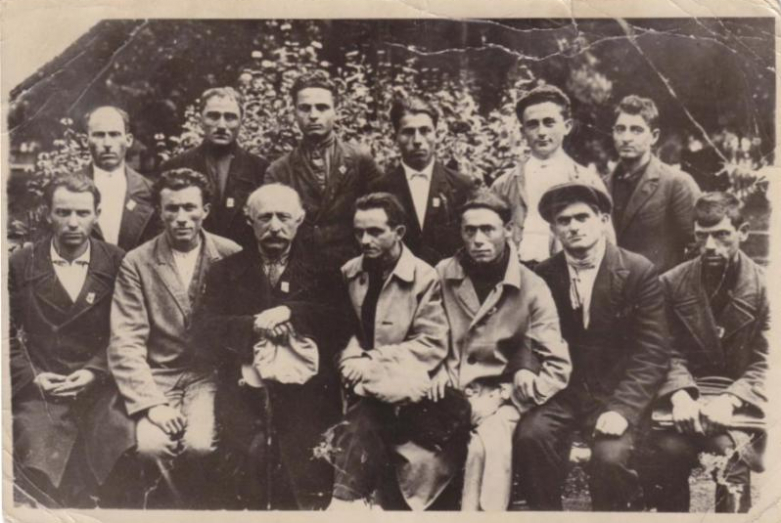
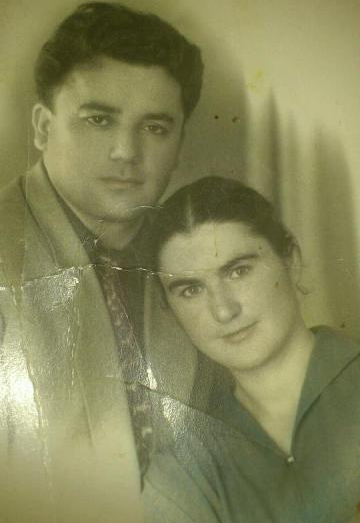
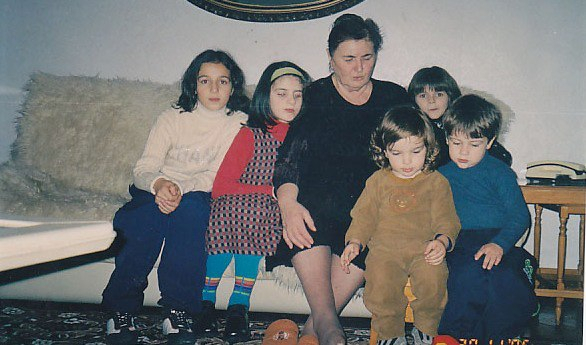
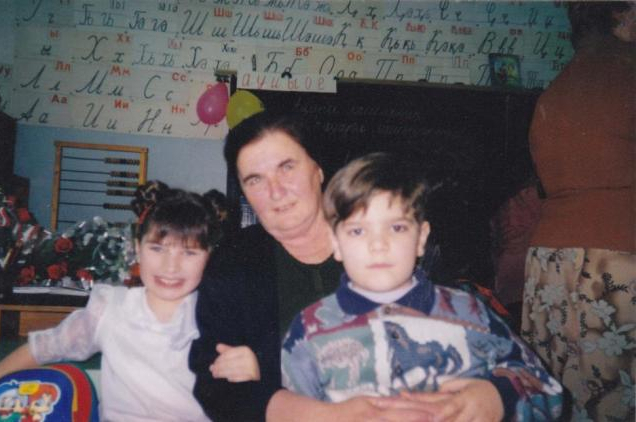
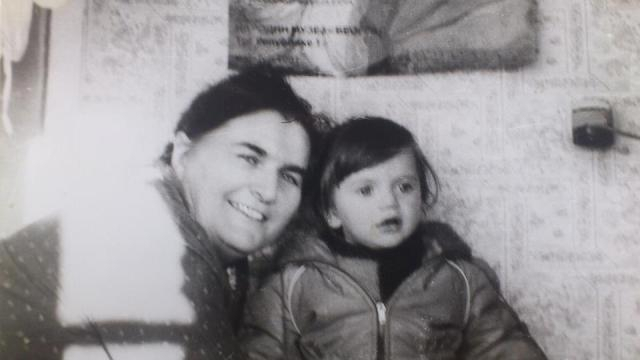
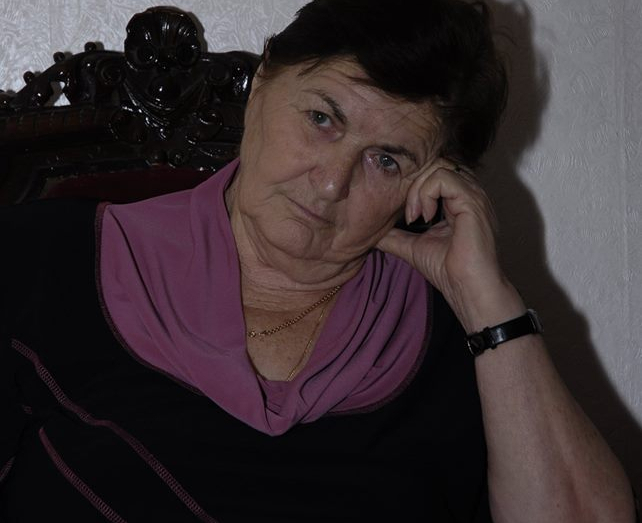
to login or register.